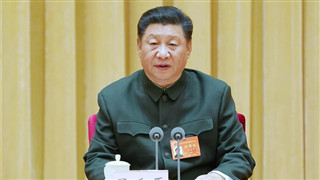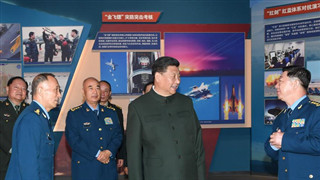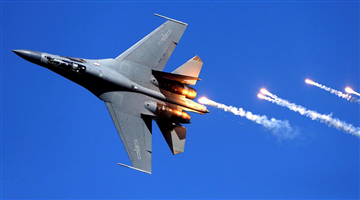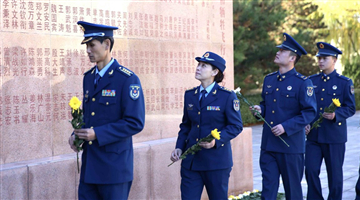By Chen Hanghui
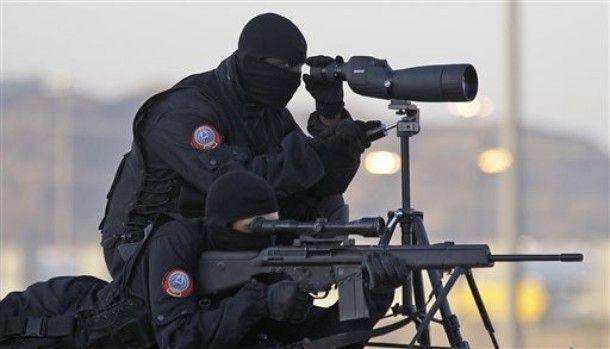
US Central Command Commander Marine Corps General Kenneth F. McKenzie Jr. confirmed on October 30 the death of Bakr al-Baghdadi, leader of extremist organization ISIS. Previously US president Donald Trump personally announced the death of Baghdadi and called it a “great victory” that was even more significant than the death of Bin Laden in 2011. The flaunting announcement by the Trump administration couldn’t hide its “endorsement” for the strategic contraction in the Middle East and its attempt to withdraw from there by playing up the “hallmark anti-terror achievement”.
This move by US troops might heavily dampen the morale of ISIS, and the subsequent chain effects would probably disable its leadership, marking a major victory in international anti-terror efforts. But we must be clear-minded that Baghdadi’s death didn’t mean the automatic extinction of ISIS, much less the clearance of terrorist shadow in the Middle East.
In the new century, international terrorist forces, in face of sustained attacks from the international anti-terror alliance, have evolved more quickly with a more flattened and decentralized organization. As an important form of “systematic attack and destruction”, the decapitation strike is aimed to paralyze the enemy’s commanding system by launching precise strikes on such key targets as their leaders and command centers.
Being a modern version of the theory of “capturing the ringleader first in order to capture all his followers”, the decapitation strike is more suitable for dealing with conventional rivals in conventional warfare, but isn’t so effective in tackling the obviously decentralized modern international terrorist organizations. Based on the lesson we learnt from American troops’ killing Bin Laden, ISIS may very well continue to exist for a long time despite the death of a leader. According to a former anti-terror senior officer at the White House, the death of Baghdadi was a “huge blow” to ISIS but it won’t cause strategic collapse.
Historical data show that decapitation strike can hardly cause any destructive effect on international terrorist organizations. According to the database of global terrorism, the US launched 14 decapitation strikes against Al-Qaeda in 2011, which was increased by 1.3 times compared to six strikes in 2011. During that period, the number of large-scale terrorist attacks launched by Al-Qaeda increased by 18.5 times from 6 to 117. Furthermore, as the founder and soul of ISIS, Baghdadi has a lot of extremist followers in Syria, Iraq and elsewhere around the world, so the source of terrorism is far from being eradicated. ISIS is very likely to launch intense revengeful attacks in the near future.
The international anti-terror practices in the past 20 years have shown that if we fight terrorism simply with military means, the results won’t sustain or touch the root cause of terrorism, let alone uproot it once and for all. Killing Baghdadi was exciting news for Middle East countries and marked a substantial progress in fighting ISIS, but reality is not too optimistic.
The Middle East region today remains a hotbed for terrorism for its poverty, corruption and social inequity, and factors that fan up the flame of terrorism, such as factional struggles, armed conflicts and interference by out-of-region forces, are still at work. We must be cautious about the reemergence of factors that have caused the rise of ISIS in recent years. In Iraq, the government is corrupt, economy is stagnant, protests are endless, and security situation keeps worsening; in Syria, extremist forces still have a place, and games between major countries both inside and outside the region remain intense. To make things worse, as ISIS is coming to the end of its rope, the international anti-ISIS coalition exists in name only with various internal conflicts, and different parties are poised to settle old accounts.
In the meantime, the Palestine-Israel conflict, the crisis in Yemen and the US-Iran standoff all add new uncertainties to the peace process in the Middle East. It’s easy to see that as long as peace isn’t truly achieved in the region, as long as certain western countries continue to pursue their own interests in the name of counter terrorism and take it as a tool to realize their strategic goals, the anti-terrorist situation there won’t be fundamentally changed. All in all, although Baghdadi is dead, the journey of anti-terrorism remains long and hard in the Middle East, and the international community has to step up cooperation in this regard to prevent the turning up of more extremists like Baghdadi.
